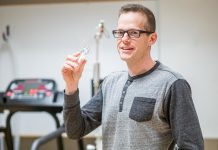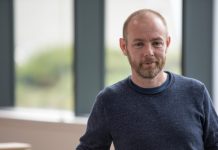August 2006 - Research by Warwick Medical School at the University of Warwick has found that sleep deprivation is associated with an almost a two-fold increased risk of being obese for both children and adults.
Early results of a study by Professor Francesco Cappuccio of the University of Warwick's Warwick Medical School were presented to the International AC21 Research Festival hosted this month by the University of Warwick.
The research reviewed current evidence in over 28,000 children and 15,000 adults. For both groups Professor Cappuccio found that shorter sleep duration is associated with almost a two-fold increased risk of being obese.
The research also suggests that those who sleep less have a greater increase in body mass index and waist circumference over time and a greater chance of becoming obese over time.
Professor Cappuccio says:
Continue Reading Below ↓↓↓
"The 'epidemic' of obesity is paralleled by a 'silent epidemic' of reduced sleep duration with short sleep duration linked to increased risk of obesity both in adults and in children.These trends are detectable in adults as well as in children as young as 5 years."
Professor Cappuccio points out that short sleep duration may lead to obesity through an increase of appetite via hormonal changes caused by the sleep deprivation. Lack of sleep produces Ghrelin which, among other effects, stimulates appetite and creates less leptin which, among other effects, suppresses appetite. However he says more research is needed to understand the mechanisms by which short sleep is linked to chronic conditions of affluent societies, such as obesity, diabetes and hypertension.
Francesco Branca, the Regional Adviser for nutrition and food security in the World Health organisation (WHO) Regional Office for Europe said:
"This is an interesting piece of research putting together different lifestyle aspects with food choices. We need more research on the obese environment - the integration between medical research and socio-political research is something we should be exploring more."
Source: University of Warwick









